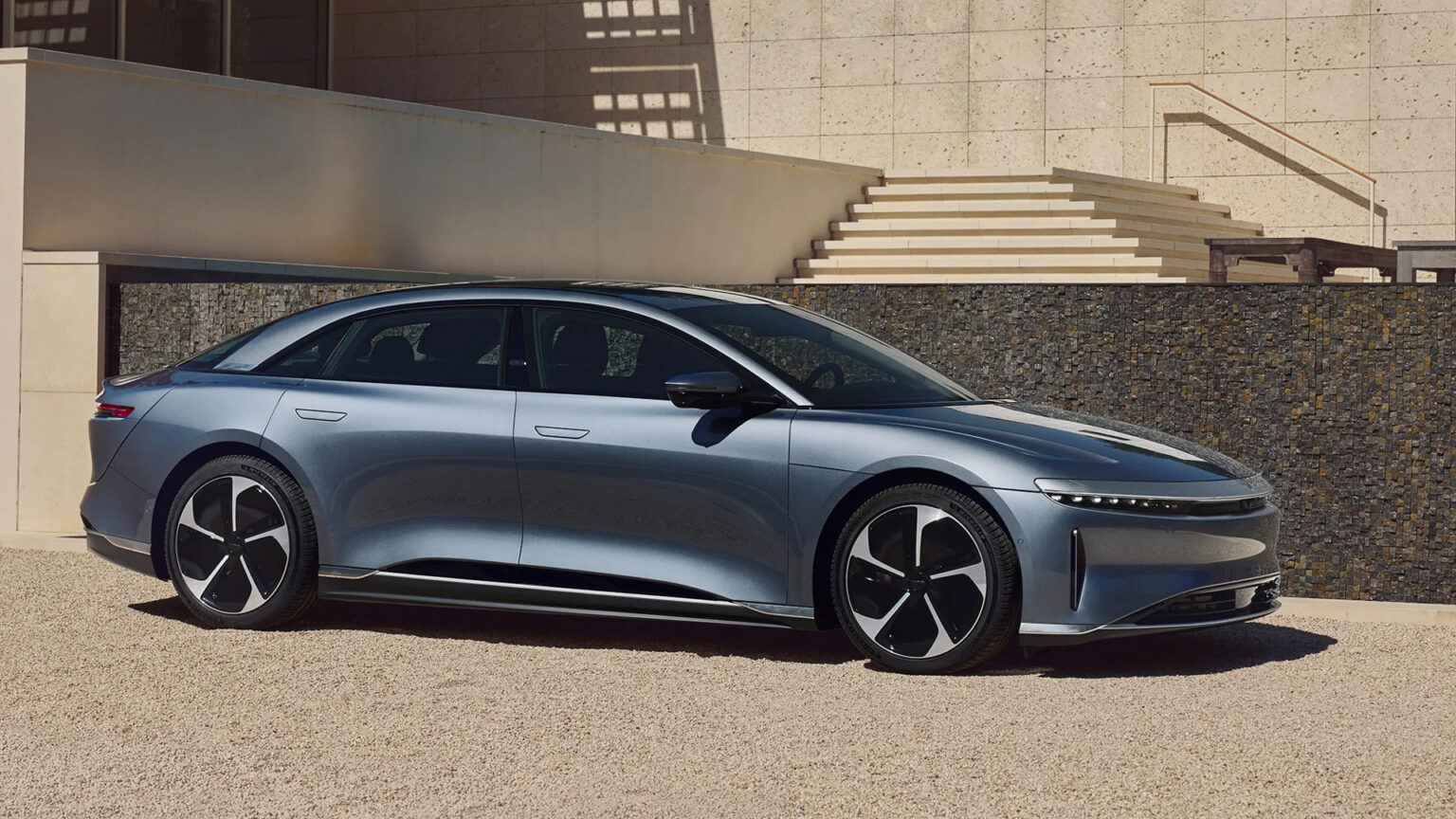With Tesla scrapping its plan to build a $25,000 passenger car for a fully autonomous robotaxi, the dream of an affordable electric vehicle for the everyman looks grim. Don’t expect Lucid to build one, either, as mass-producing such a car is just too expensive for a small company. However, Lucid’s CEO Peter Rawlinson says that an affordable EV with decent range is still possible by licensing its battery and electric motor technology to other brands.
During a recent Wall Street Journal podcast episode, Rawlinson discussed the potential for licensing Lucid’s tech to more established legacy automakers so they can build cheap EVs. He says that Lucid currently lacks the manufacturing capabilities to mass-produce something around half the price of the $70,000 Air sedan, and investing in such capabilities isn’t viable, since the profit margins on cheap cars are much smaller.
“I think this is where our licensing opportunity comes into play. As a tech company, licensing our technology so that other OEs can benefit from that and they can put such a vehicle in place. They have a more installed manufacturing base,” Rawlinson said.
Lucid is at the forefront when it comes to efficient EV tech. It’s the only maker of electric cars to build one with more than 500 miles of range, it was the first to achieve five miles per kWh in a production car, and it also makes a four-door luxury sedan with 1,234 horsepower that can hit 60 mph in 1.89 seconds. Its electric motors are incredibly power-dense while simultaneously being small enough to fit into overhead airplane luggage. Altogether, it’s bewildering why Lucid hasn’t been licensing it out already.
Interestingly, Rawlinson also says that cheaper EVs going forward should have much shorter ranges on average. High-efficiency motors, combined with small, fast-charging batteries is his vision for the future.
“The EV of the future, I believe, will have shorter range,” he said. Lucid is currently working on an extremely high-efficiency electric powertrain program, called “Vision Six,” capable of six miles per kWh. With that sort of efficiency, you can have an EV with a tiny 30 kWh battery—smaller than the Mini Cooper Electric’s—that can provide 180 miles of range. “And that’s more than enough for most consumers, and if you knew there was fast charging on every street corner, why would you need to carry more than 180 miles as an antidote for range anxiety on the vehicle?”
According to Rawlinson, that 30-kWh battery pack would only cost a few thousand dollars, instead of around $20,000. In addition to being cheaper, the smaller battery would be much lighter, creating a multiplying effect that improves range, performance, comfort, and cost. Smaller, ultra-efficient batteries and motors seem to be the future of affordable EVs—at least as long as Lucid isn’t building them.
Admittedly, Lucid is going to have a cheaper, midsize car that will cost around $48,000-$50,000 in 2026, but that’s as cheap as the brand is willing to go. “And I think that sort of would be a nice bookend for our product range. We have [Air] Sapphire starting at [$249,000], coming down to midsize at [$48,000].
Countless legacy automakers are investing huge amounts of money into manufacturing facilities for batteries and motors, but it might be more beneficial for many of them to license that tech from Lucid instead. Given the brand’s impressive range, power density, and packaging, it could be exactly what some manufacturers have needed to build an affordable EV for the future. Especially if Lucid can crack six miles per kWh.
Got tips? Send ’em to tips@thedrive.com
Read the full article here

